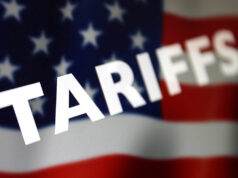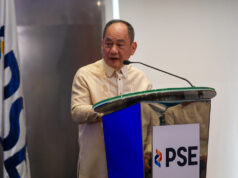Finance dep’t holding resources in reserve in case of second wave
THE Department of Finance (DoF) said it plans to keep spending “fiscally responsible” in case of a second wave of coronavirus infections and declared that the government will be able to finance the required measures if the next wave hits.
“To date, we have raised P1.2 trillion in net domestic borrowing from the beginning of the year to cover our budget deficit,” Finance Secretary Carlos G. Dominguez III said during the Kapihan sa Manila Bay forum Tuesday.
The government is building up its war chest to finance the pandemic containment effort amid numerous calls on government resources from the proposed stimulus bills, the social amelioration program, and looming bailouts, among others.
He said the government will be “very pragmatic” and “fiscally responsible” amid pressures to increase spending on the COVID-19 containment effort.
“As epidemiologists warn, we could face a second wave of infections. Prudence dictates that we keep our powder dry. We should be able to finance fighting the second wave should this happen,” he said.
He said the budget deficit, which is expected to be equivalent to 8.4-9% of gross domestic product this year, is widening due to plunging tax collections, higher spending for coronavirus disease 2019 (COVID-19) containment measures, as well as anticipated investments required by the economic recovery program currently being drafted.
The budget deficit hit P202 billion in May, taking the year to date total to P562 billion, much larger than the year-earlier deficit of P809 million.
Mr. Dominguez said the government has borrowed $4.83 billion as of June 17 from multilateral banks, with $2.26 billion so far credited to the Treasury.
Of the total, $2.6 billion was provided by the Asian Development Bank, $1.2 billion by the World Bank, $750 million by the Asian Infrastructure Investment Bank and $275.5 million by Agence Française de Développement, the French development agency.
“The ability to refinance at lower cost will help us recover more quickly and more sustainably. This is what makes credit ratings precious to restoring our economy’s health. This is precisely the reason why we are guarding (the ratings) very well,” he said.
Meanwhile, Mr. Dominguez said the government has also collected P149.2 billion from dividends of government-owned and controlled corporations as of June 19, adding to the government’s non-tax revenue.
He said tax revenue remains the largest source of income for the government even with collections falling 24% from a year earlier to P891 billion in the five months to May, due to the severe economic slowdown and the postponement of the tax filing to June from April.
By the end of June, he said collections should recover with 2019 income taxes due to be paid within the month.
“We will also continue to implement reforms in our tax system to help support our budgetary requirements. Among these reforms is the taxation of the digital economy to generate more revenue, while establishing more clarity in what will be the inevitable future of the global economy,” he said.
Mr. Dominguez said the government will focus on collecting value-added taxes (VAT) from sales made online.
He said the recent circular issued by the Bureau of Internal Revenue (BIR) was released to remind all business owners, including those selling through digital platforms, to register their businesses with the government whether taxable or not. He said the move will level the playing field as well for all businesses, online and offline.
“Registering with the BIR not only helps the government generate additional revenue for its COVID-19 response measures and various projects. Joining the formal economy also ensures that these businesses and their employees are eligible for government assistance,” he said.
Citing provisions under the Tax Reform for Acceleration and Inclusion Act, businesses earning less than P250,000 each year are exempt from tax, while those generating less than P3 million in sales per year are VAT-exempt.
Leonardo A. Lanzona, a professor at Ateneo de Manila University Economics Department, said the government is likely to boost its spending on COVID-19 measures as the threat of the virus remains, but adds that additional spendings should focus on long-term solutions.
“It is not just the amount of money that is spent that determines the quality of the program, it also entails setting up the right procedures and strategies to arrive at the optimal effects. Currently, what we are seeing is incompetence on the part of this administration in solving this problem,” Mr. Lanzona said. — Beatrice M. Laforga



